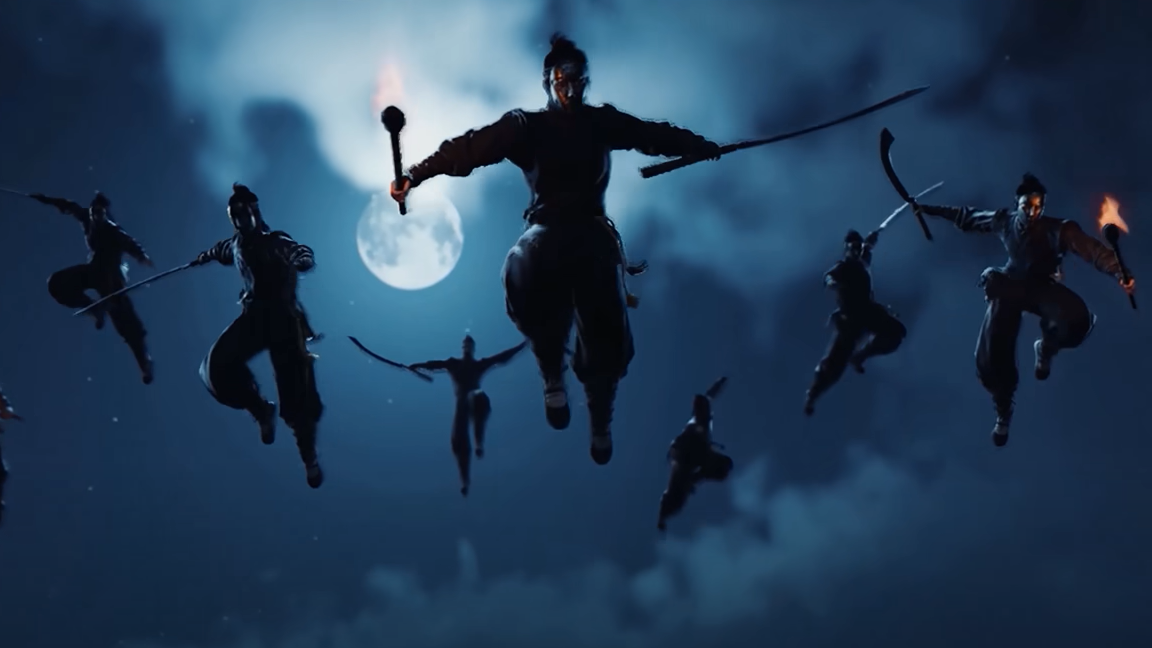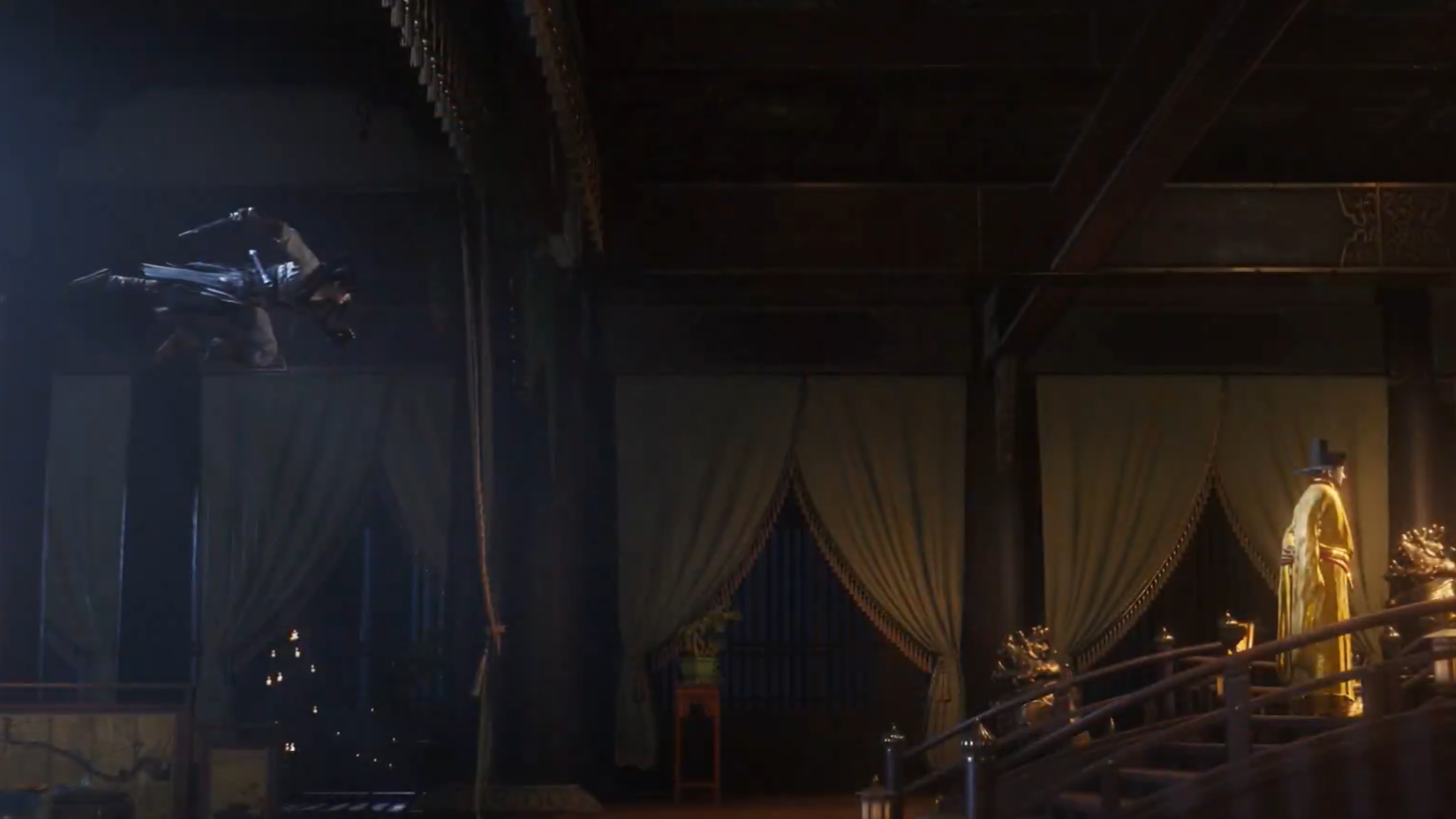Fu Lushou sits in an awkward place in Where Winds Meet: he matters enough to show up on the Jianghu Friends list, but the game never clearly explains how to approach him, why he keeps attacking you, or how he fits into the early Qinghe quest web around the General’s Shrine, Echoes in the Shrine, and Echoes of Old Battles.
This breakdown focuses on what Fu Lushou is, where he lives in the game’s design, and what players have actually managed to do with him so far.
Who Fu Lushou is in Where Winds Meet
Fu Lushou is one of the “Old Friends” you can befriend in Qinghe. Players first bump into his name in the Jianghu Friends list and on the ground around the General’s Shrine, then discover a more volatile personality than most early NPCs:
| Detail | Fu Lushou |
|---|---|
| Role | Jianghu Friend (Old Friend) with a very short temper |
| Region | Qinghe, near early General’s Shrine content |
| Behavior | Attacks after a few wrong lines; can be killed and will still respawn later |
| Issue players hit | Conversation breaks into combat; hard to see any “correct” dialogue path |
Players frequently mention Fu Lushou together with Fu Lubao and Fang Xu as the early “problem people” of Qinghe: all three tie into the same band of shrine-side misfits and early AI-powered conversations, and all three are much less forgiving than the rest of the cast.
How Fu Lushou connects to the General’s Shrine quest cluster
Fu Lushou doesn’t exist in a vacuum. The entire General’s Shrine area is wired around a chain of Side Stories and one tricky Jianghu Friend cluster:
| Content | Location | What it does |
|---|---|---|
| The Silent Assassin | General’s Shrine → Hall of Seasons → Jadebrook Mountain | Introduces Long Wu and pulls you back to the shrine at Hai hour. |
| Echoes in the Shrine | Underneath General’s Shrine | Unlocks the deep cave, bandit fights, Cloud Steps, and a lore-heavy underground shrine. |
| Echoes of Old Battles | Northern Vow Ruins | Expands the Qinghe war-tomb story, gives Touch of Death, and uses similar puzzle logic. |
| Fu Lubao & Meow Meow | General’s Shrine surroundings | Side encounter with the grave robber who wants Meow Meow’s treasure bell. |
| Fu Lushou & Fang Xu | Nearby Jianghu Friend cluster | Old Friends AI chats that are easy to break if you rush or pick aggressive lines. |
The game uses this spot as an early testbed for three systems at once: time shifts (meeting Long Wu at Hai hour), physics and environmental puzzles (Echoes in the Shrine), and text-driven AI conversations (the Jianghu Friends, including Fu Lushou).

Why Fu Lushou keeps attacking you
Fu Lushou’s biggest trick is that nothing obvious marks where the safe line in his mood actually is. Players report three consistent behaviors:
- He will stand or sit in place and initially just deliver terse dialogue.
- After a few replies he doesn’t like, he flips straight into combat and will fight to the death.
- If you kill him in frustration, he isn’t permanently gone; fast traveling or passing time eventually brings him back to his spot.
That last detail means Fu Lushou is not a standard quest NPC with a fail state. The game treats him more like a repeatable AI conversation challenge: you can always come back and try again with different wording, and his “death” in that moment is more of a soft reset than a permanent loss.
Fu Lubao, Meow Meow’s bell, and why people confuse the two Fus
A lot of frustration around Fu Lushou starts with confusion over Fu Lubao, the grave robber at the General’s Shrine. Lubao has his own small quest: he wants the “Meow Meow treasure,” the bell obtained from solving the Meow Meow puzzle.
That encounter works like this:
- Solve the Meow Meow puzzle and receive a bell as the treasure.
- Find Fu Lubao near the shrine; if the sequence lines up, you can gift him a single bell directly through a prompt or by clearly “acting” the handover in chat.
- Once you give him the bell, he leaves. This does not immediately grant Jianghu friendship — it is just one stage of a longer arc.
The problem: if you already picked up Meow Meow’s treasure before meeting Lubao, his dialogue can shift into a demanding mode where he simply insists you hand it over. Some players discovered that putting the “action” in quotes (for example, typing something like “gives bell” rather than saying you “will give” it) is interpreted correctly by the AI and triggers the handover. Others eventually received an explicit “Give bell” option by reloading into the area.
Fu Lushou is a different person entirely, but he’s tied into the same early shrine neighborhood and shares a surname. It’s common to accidentally attribute the bell interaction or grave robbery dialogue to Fu Lushou when talking through problems with friends.
How Fu Lushou fits into Jianghu Friends and Old Friends lists
The Jianghu Friends system tracks relationships with dozens of named NPCs scattered across Qinghe and Kaifeng. Many of them are tied to clear, scripted Side Stories; others, like Fu Lushou, lean heavily on open-ended dialogue.
| Jianghu Friend | Type | Behavior |
|---|---|---|
| Song Jiu (Gift of Gab: Silver Tongue) | Side Story & debate mini-game | Scripted debate; success is almost guaranteed if you play the cards in sequence. |
| Feng Jisheng (Yin and Yang, Shadow and Echo) | Side Story & cave exploration | Linear puzzles with Tai Chi combat tutorial; no mood swings. |
| Yan Qiren (Meridian Touch) | Side Story & Mystic Art | Static NPC, simple acupoint interaction to unlock a skill. |
| Fu Lushou | Jianghu Friend / Old Friend | Pure AI conversation; has a “short fuse” and goes hostile after a few disliked lines. |
Fu Lushou stands out because he doesn’t have a published Side Story chain like Meridian Touch or Blind to the World. Players see him listed as an Old Friend in the area, see that he keeps reappearing after being killed, and then spend hours trying different conversational angles to unlock his friendship points.
At the time early players were mapping Qinghe, that friendship path hadn’t yielded a widely shared solution. What is clear is that:
- Fu Lushou is not part of any of the documented Qinghe Side Stories, such as The Silent Assassin, Echoes in the Shrine, or Echoes of Old Battles.
- He is not tied to any Mystic Skill, Inner Way, or Lightness Skill unlock (those come from quests like Meridian Touch, Blind to the World, Afterglow, and Palace of Annals).
- His purpose is focused on the Jianghu Friends system itself: a test of reading his attitude and role-playing your responses.
What happens if you kill Fu Lushou
One of the most common worries is that killing Fu Lushou locks you out of something important. It doesn’t.
- If he gets mad and attacks, you can fight back and kill him.
- Fast traveling or letting time pass causes him to reappear so you can talk to him again.
- Nothing in the known Side Story chains breaks if you’ve killed him once or several times; the shrine and palace quests proceed normally.
In that sense, he behaves more like a volatile roaming swordsman than a fragile quest giver. The game gives you room to fail the social encounter repeatedly without punishing your larger progress.
How Fu Lushou compares to other early Qinghe content
Fu Lushou sits in the shadow of some of the most carefully structured content in Qinghe:
- The Silent Assassin starts at the General’s Shrine with Long Wu, then drags you up to the Hall of Seasons and Jadebrook Mountain at specific times of day. It’s rigidly scripted.
- Echoes in the Shrine turns the shrine into a multi-layer dungeon with environmental restrictions, fire-arrow puzzles, and a bandit mini-boss that rewards the Cloud Steps Mystic Skill.
- Echoes of Old Battles expands that style at the Northern Vow Ruins, with multi-part clues, the Yanyun Oath stance, a set of wall puzzles, a waterwheel behind a waterfall, and the Touch of Death skill.
- Meridian Touch, Blind to the World, and Afterglow layer in acupoint techniques, sensory puzzles, and advanced Lightness Skills like Meteor Flight.
Fu Lushou, by contrast, is deliberately loose. There is no prompt telling you “Say this to make him happy,” no on-screen tracker for his mood, and no single reward moment that wraps up the interaction. He is there to push you into treating the dialogue itself as gameplay, in the same way debates and musical challenges do—but without the safety rails those mini-games offer.

Practical takeaways if Fu Lushou is giving you trouble
For now, Fu Lushou is less a checklist objective and more a personality that lives in the General’s Shrine neighborhood. A few practical points help frame him properly:
- You do not lose major skills, Inner Ways, or Side Stories if he attacks or dies.
- You can reset him by leaving the area, fast traveling, or letting some in-game time pass.
- His presence in the Jianghu Friends list marks him as an ongoing conversation project rather than a one-and-done quest.
- The nearby Fus—Lubao with the Meow Meow bell, and Lushou with the quick temper—play different roles, so treat their encounters separately.
As Qinghe opens up, the game steadily nudges you toward structured content like Palace of Annals, Yan Qiren’s stone forest, and Moonveil Mountain’s flooded shrine. Fu Lushou sits at the edge of all that, daring you to keep engaging with the AI-driven side of Jianghu even when there’s no obvious marker telling you you’ve “won.”

